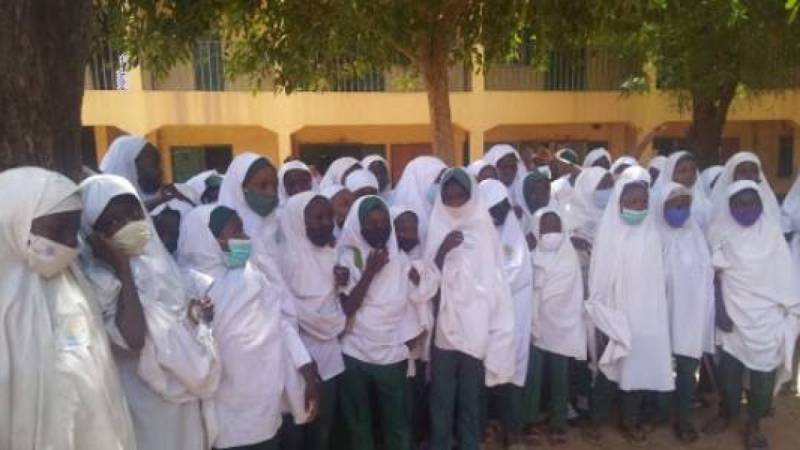300 schoolgirls feared kidnapped in Nigeria

Stay tuned with 24 News HD Android App

Suspected armed bandits raided a school dormitory in northwestern Nigeria overnight, a teacher and parent told AFP on Friday, raising fears of another mass kidnapping in the region.
"More than 300 girls are unaccounted for after a headcount of remaining students," said a teacher at the Government Girls Secondary School Jangebe who asked to remain anonymous.
He said the attack happened around 1:00 am (midnight GMT) but did not provide details on the number of students present in the school at the time.
Heavily-armed criminal gangs in northwest and central Nigeria have stepped up attacks in recent years, kidnapping for ransom, raping and pillaging.
Just last week, 42 people were taken by a gang from a school in nearby Niger state.
In December, more than 300 boys were kidnapped from a school in December in Kankara, President Muhammadu Buhari's home state of Katsina, while he was visiting the region.
The boys were later released but the incident triggered outrage and memories of the kidnappings of schoolgirls by jihadists in Dapchi and Chibok that shocked the world.
Security challenge
A parent told AFP he had received a call about the latest incident in Zamfara.
"I'm on my way to Jangebe. I received a call that the school was invaded by bandits who took away schoolgirls. I have two daughters in the school," said Sadi Kawaye.
Police have not yet confirmed the incident.
Kidnappings are just one security challenge facing Africa's most populous country, where militants are waging a jihadist insurgency in the northeast and ethnic tensions are simmering in some southern regions.
Northwest and central Nigeria have increasingly become a hub for large criminal gangs who raid villages, killing and abducting residents after looting and torching homes.
Bandits operate out of camps in Rugu forest, which straddles Zamfara, Katsina, Kaduna and Niger states.
Nigerian armed forces have deployed there but attacks and mass kidnappings persist.
The gangs are largely driven by financial motives and have no known ideological leanings.
But there are concerns they are being infiltrated by jihadists who are fighting out a decade-old conflict that has killed more than 30,000 people and spread into neighbouring Niger, Chad and Cameroon.
